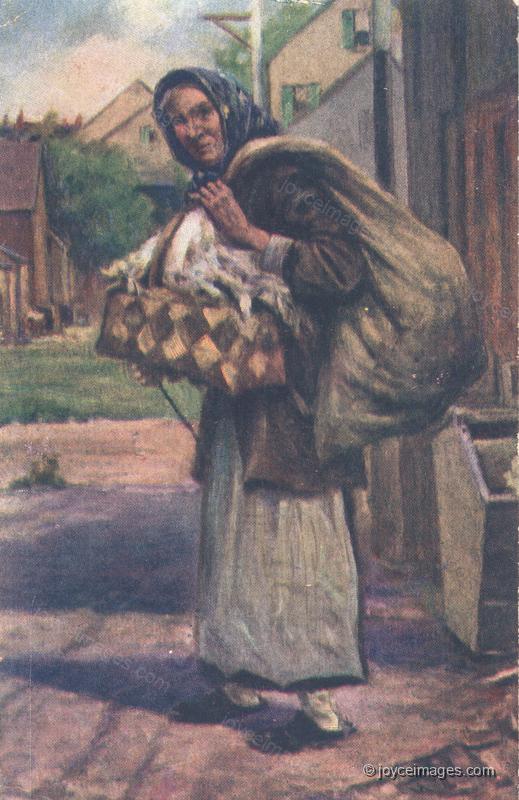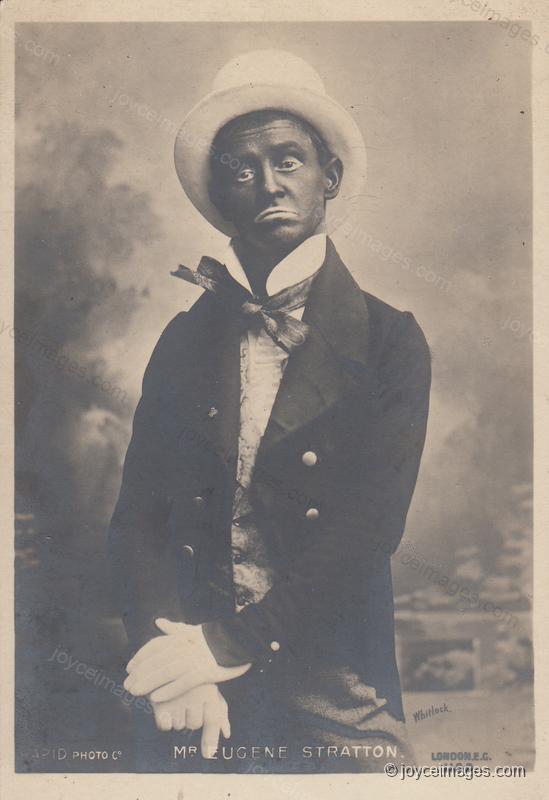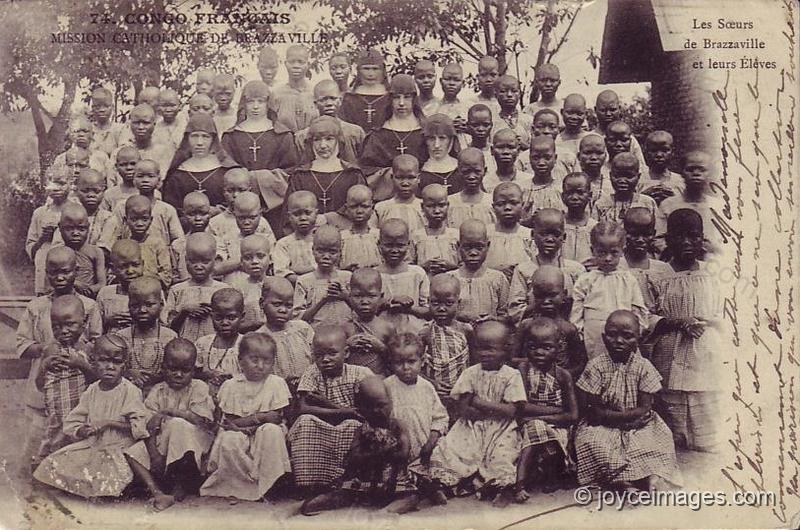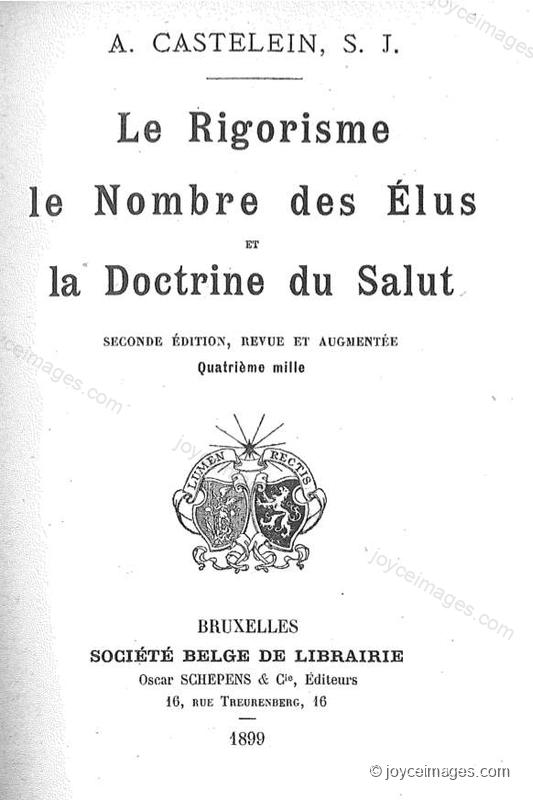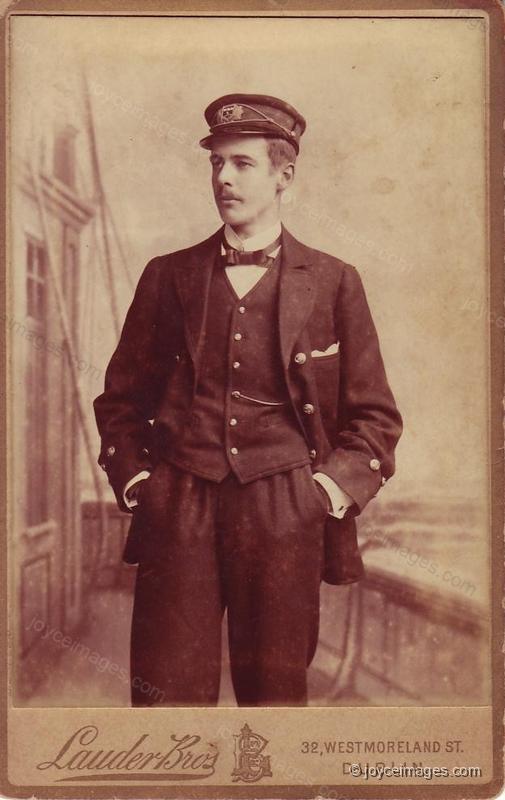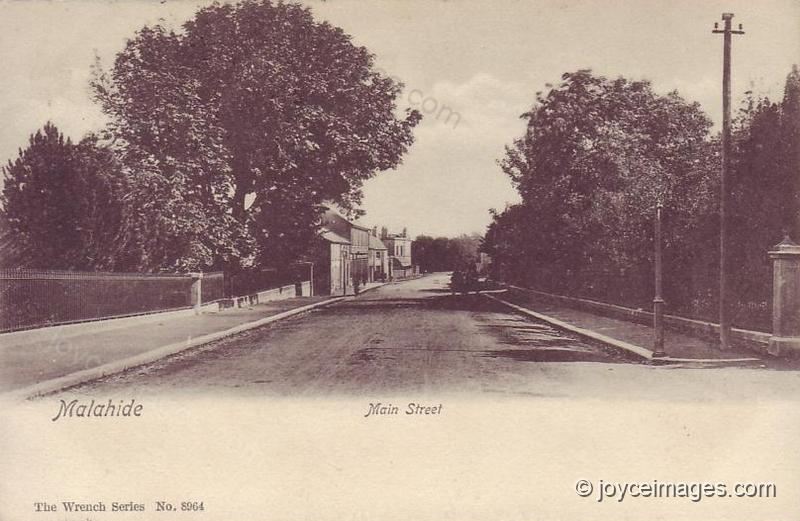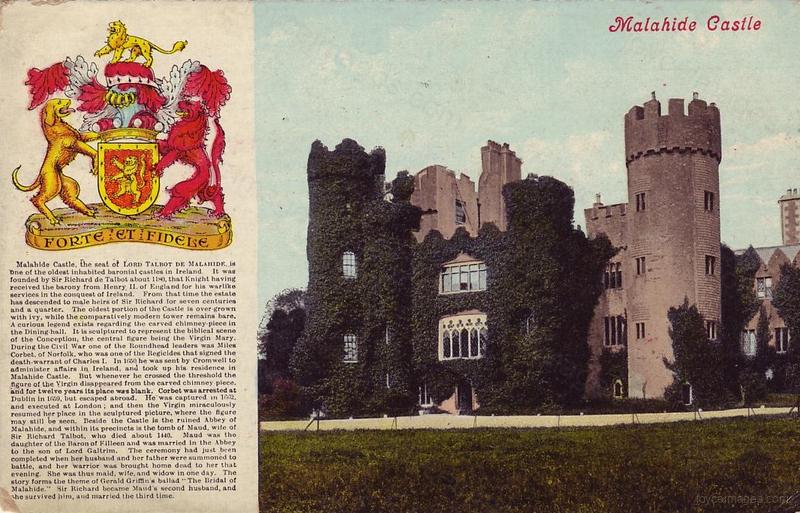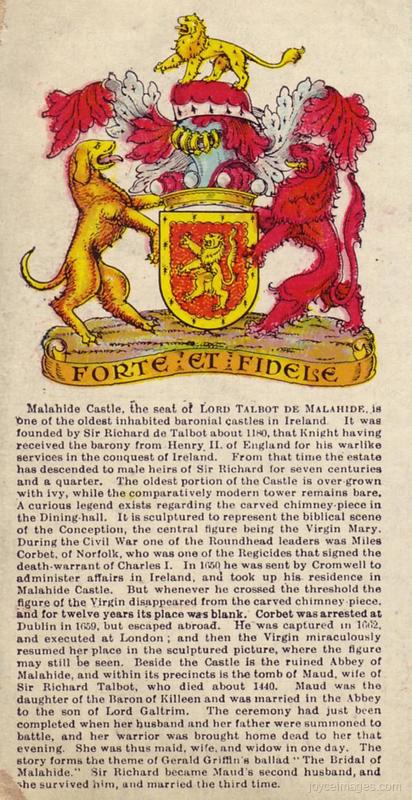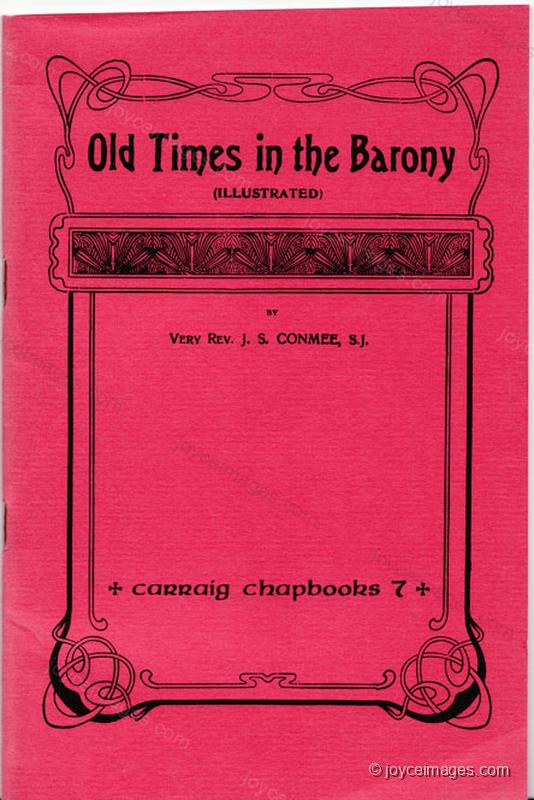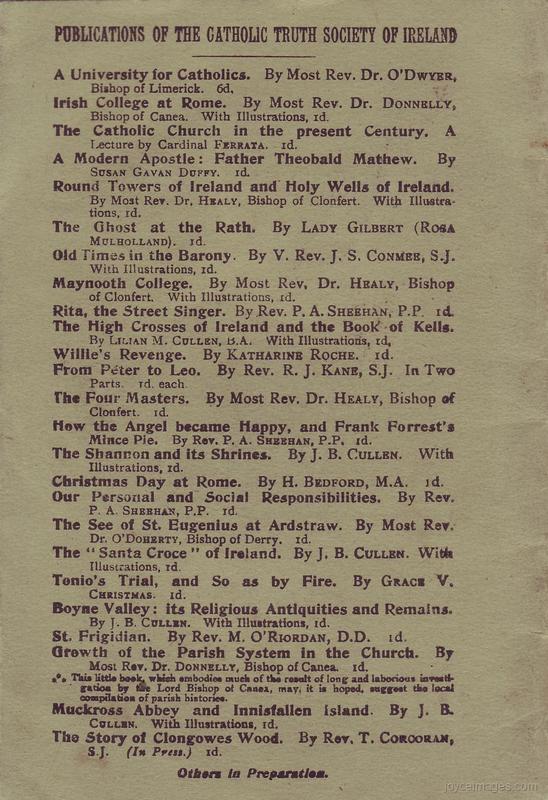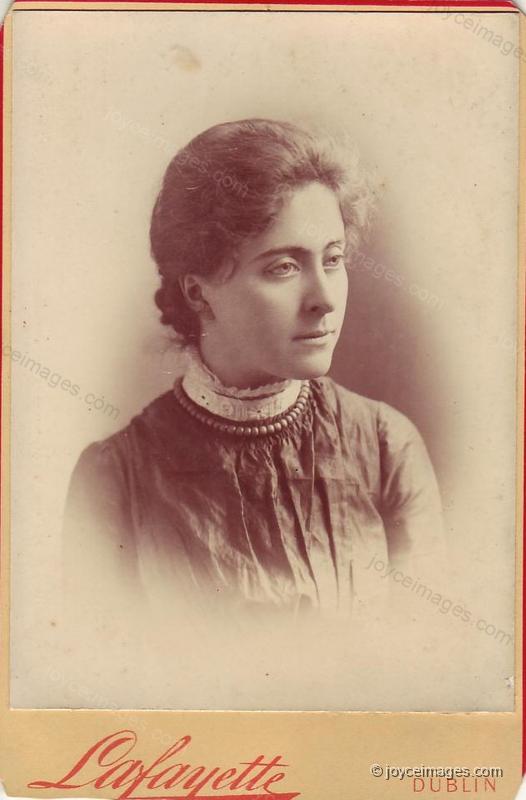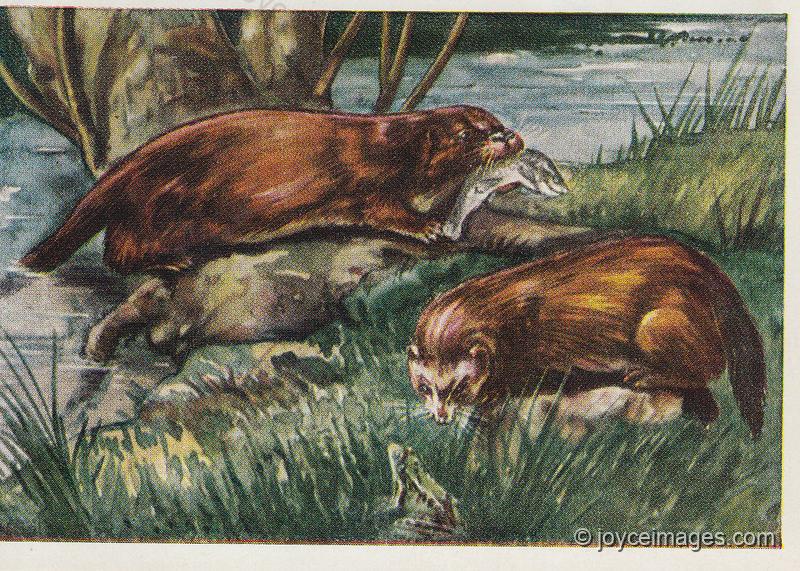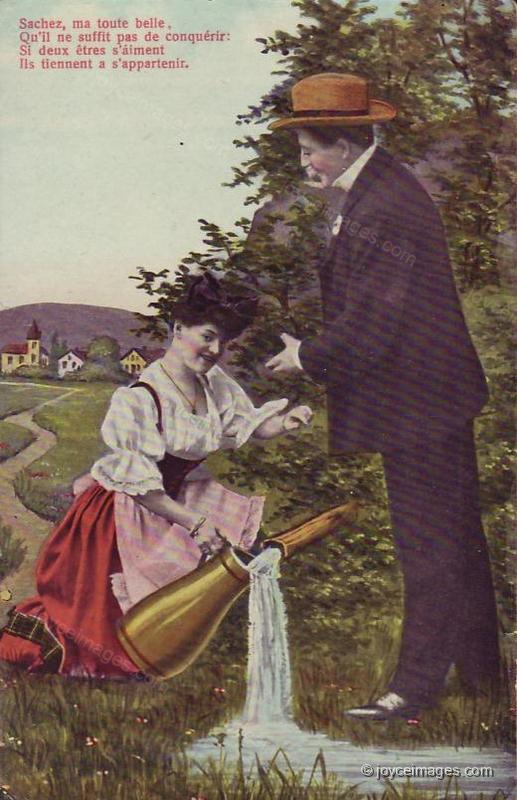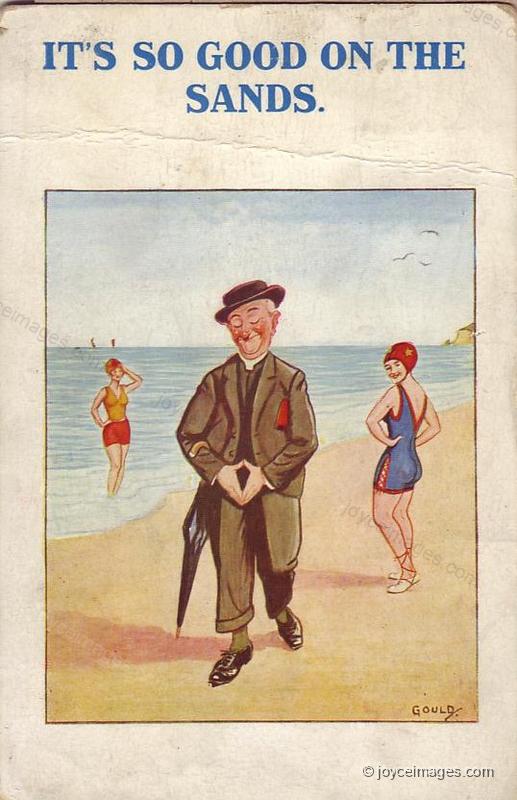"and Father Conmee thought that, as she had nearly passed the end of the penny fare, she was one of those good souls who had always to be told twice bless you, my child, that they have been absolved, pray for me. But they had so many worries in life, so many cares, poor creatures." (U10.137)
"Father Conmee thought of the souls of black and brown and yellow men and of his sermon on saint Peter Claver S.J. and the African mission and of the propagation of the faith and of the millions of black and brown and yellow souls" (U10.143)
"that had not received the baptism of water when their last hour came like a thief in the night." (U10.146)
"That book by the Belgian jesuit, Le Nombre des Élus, seemed to Father Conmee a reasonable plea. Those were millions of human souls created by God in His Own likeness to whom the faith had not (D.V.) been brought. But they were God's souls, created by God. It seemed to Father Conmee a pity that they should all be lost, a waste, if one might say." (U10.147)
[Image courtesy of the ZJJF]
[Image courtesy of the ZJJF]
"At the Howth road stop Father Conmee alighted, was saluted by the conductor and saluted in his turn." (U10.153)
Malahide is the name of a village 9 miles north of Dublin, and a castle adjoining. The oldest parts of the castle date back to the 12c. It was home to the Talbot family since 1185. A poignant story relates that, on the morning of the Battle of the Boyne in 1690, 14 members of the family breakfasted together, and none of them returned. In the 1920s, the private papers of James Boswell were discovered in the castle. In 1973, the 7th Baron Talbot died, and his sister Rose sold the castle to the Irish State (1975).
"The joybells were ringing in gay Malahide. Lord Talbot de Malahide, immediate hereditary lord admiral of Malahide and the seas adjoining. Then came the call to arms and she was maid, wife and widow in one day." (U10.156)
As the legend of the above PC explains: "Beside the Castle is the ruined Abbey of Malahide, and within its precinct is the tomb of Maud, wife of Sir Richard Talbot, who died about 1440. Maud was the daughter of the Baron of Killeen and was married in the Abbey to the son of Lord Galtrim. The ceremony had just been completed when her husband and her father were summoned to battle, and her warrior was brought home dead to her that evening. She was thus maid, wife and widow in one day. The story forms the theme of Gerald Griffin's ballad 'The Bridal of Malahide.' Sir Richard became Maud's second husband, and she survived him, and married the third time."
Gerald Griffin's ballad 'The bridal of Malahide' starts:
"The joy-bells are ringing in gay Malahide"
and includes the lines:
"She sinks on the meadow in one morning-tide,
A wife and a widow, a maid and a bride!"
As the legend of the above PC explains: "Beside the Castle is the ruined Abbey of Malahide, and within its precinct is the tomb of Maud, wife of Sir Richard Talbot, who died about 1440. Maud was the daughter of the Baron of Killeen and was married in the Abbey to the son of Lord Galtrim. The ceremony had just been completed when her husband and her father were summoned to battle, and her warrior was brought home dead to her that evening. She was thus maid, wife and widow in one day. The story forms the theme of Gerald Griffin's ballad 'The Bridal of Malahide.' Sir Richard became Maud's second husband, and she survived him, and married the third time."
Gerald Griffin's ballad 'The bridal of Malahide' starts:
"The joy-bells are ringing in gay Malahide"
and includes the lines:
"She sinks on the meadow in one morning-tide,
A wife and a widow, a maid and a bride!"
"Those were old worldish days, loyal times in joyous townlands, old times in the barony.
Father Conmee, walking, thought of his little book Old Times in the Barony" (U10.159)
The booklet 'Old Days in the Barony' by V. Rev. J.S. Conmee S.J. indeed exists. (Image courtesy of Harald Beck)
Father Conmee, walking, thought of his little book Old Times in the Barony" (U10.159)
The booklet 'Old Days in the Barony' by V. Rev. J.S. Conmee S.J. indeed exists. (Image courtesy of Harald Beck)
"and of the book that might be written about jesuit houses and of Mary Rochfort, daughter of lord Molesworth, first countess of Belvedere." (U10.162)
'Old Days in the Barony' by V. Rev. J.S. Conmee S.J. here advertised among the publications of the Catholic Truth Society of Ireland (Dublin).
'Old Days in the Barony' by V. Rev. J.S. Conmee S.J. here advertised among the publications of the Catholic Truth Society of Ireland (Dublin).
"A listless lady, no more young, walked alone the shore of lough Ennel, Mary, first countess of Belvedere, listlessly walking in the evening," (U10.164)
[NB: this is not the countess of Belvedere]
[NB: this is not the countess of Belvedere]
"Who could know the truth? Not the jealous lord Belvedere and not her confessor if she had not committed adultery fully, eiaculatio seminis inter vas naturale mulieris, with her husband's brother? She would half confess if she had not all sinned as women did. Only God knew and she and he, her husband's brother." (U10.166)
"Father Conmee thought of that tyrannous incontinence, needed however for man's race on earth, and of the ways of God which were not our ways." (U10.171)
"Don John Conmee walked and moved in times of yore. He was humane and honoured there. He bore in mind secrets confessed and he smiled at smiling noble faces in a beeswaxed drawingroom, ceiled with full fruit clusters. And the hands of a bride and of a bridegroom, noble to noble, were impalmed by don John Conmee.
It was a charming day." (U10.174)
It was a charming day." (U10.174)
